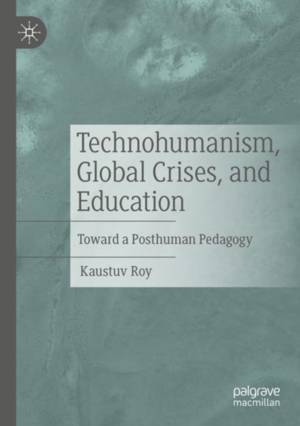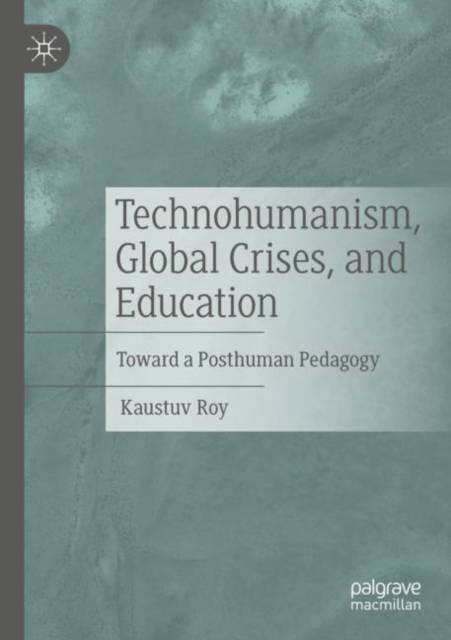
- Afhalen na 1 uur in een winkel met voorraad
- In januari gratis thuislevering in België
- Ruim aanbod met 7 miljoen producten
- Afhalen na 1 uur in een winkel met voorraad
- In januari gratis thuislevering in België
- Ruim aanbod met 7 miljoen producten
Technohumanism, Global Crises, and Education
Toward a Posthuman Pedagogy
Kaustuv RoyOmschrijving
This book argues that global crises such as the present Covid-19 pandemic are correlates of the contemporary thought regime that it calls technohumanism. Taking up the pandemic as the central case in point, the book shows how the basic assumptions of technohumanism encourage large-scale dependencies and a consequent loss of endurance in the populace. Next, it shows that a form of recuperation can be pedagogically attempted by means of a "psychoanalysis" of thought which releases it from the humanist limits placed on it. To do this, it introduces the notion of a living unconscious as distinct from the Freudian Unconscious, and argues that in the living unconscious there is no distinction between the prehuman and the posthuman, and a posthumanist pedagogy can be constructed on the basis of an adequate transfer of prehuman dynamism.
Specificaties
Betrokkenen
- Auteur(s):
- Uitgeverij:
Inhoud
- Aantal bladzijden:
- 198
- Taal:
- Engels
Eigenschappen
- Productcode (EAN):
- 9783030994419
- Verschijningsdatum:
- 29/04/2023
- Uitvoering:
- Paperback
- Formaat:
- Trade paperback (VS)
- Afmetingen:
- 148 mm x 210 mm
- Gewicht:
- 258 g

Alleen bij Standaard Boekhandel
Beoordelingen
We publiceren alleen reviews die voldoen aan de voorwaarden voor reviews. Bekijk onze voorwaarden voor reviews.









